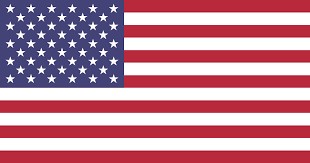 |
 |
LANGUAGES |
| Let's save the planet | A new world | For a united region | Reader's opinion | Directors, Statutes | Donations |
| News headlines | Newspaper archive | Editorial | Editorial Archive | About Esequibo | Naturalists in Venezuela |
| CONCLUSIVE EVIDENCE THAT DEMONSTRATES THE SOVEREIGNTY OF VENEZUELA IN GUAYANA ESEQUIBA. |
It is very clear that this territory, currently in dispute, has unquestionably belonged to us since the colony. This is clearly demonstrated when analyzing the tradition of its ownership. In fact, already at the end of the 18th century, Spain and Portugal defined the borders of their colonies on the American continent and, as can be clearly seen in the corresponding delimitation map, copies of which rest in archives of historical documents of European countries and Americans, the Captaincy General of Caracas extended its territory to the northwest bank of the Essequibo River, which served as the limit with the territories of the then Dutch Guiana. Thanks to the subsequent British-Dutch treaties of 1814 and 1824 for the redistribution of their colonial possessions, a small part of Dutch Guiana, limited to the north by the Essequibo River, became the property of the English crown, thus giving rise to the birth to British Guiana. |

|
|
The English Empire did not care that its space in Guyana was reduced, since its original idea was to expand it to the northwest side of the Essequibo River at the expense of Venezuelan territories, an action that began shortly after the signing of the aforementioned treaties. Evidence of this can be seen in the writing, "Inductions to the colored people of the United States to emigrate to British Guiana" prepared by Mr. Edward Carbery, official of the "British Guiana Immigration Society", published in Boston in 1840 by Kidder and Wright, which rests in the archives of the Library of Congress of the United States of America, and in which he invited "people of color" to be sent to populate said territory, arguing that it was rich in natural resources and fertile lands, pointing out that its limit with Venezuela to the north was marked by the Moroco ravine, not far from the west bank of the Essequibo River. In the following map we indicate the location of said ravine, very close to Georgetown, its capital, and very far from the limits that they intend to impose on our country. |

|
|
Furthermore, in the same writing he expressly noted that his nation had an area of about 40,000 square miles, approx. 103,000 km2, almost double the 55,427? km2, of the territory obtained by Great Britain from Holland, but considerably less than the more than 214,000 km2 that Guyana exhibits today. This difference between this last figure and the original territory with which British Guiana was born is a product of the progressive dispossession of Venezuelan territory. Any ICJ ruling that rules in favor of Guyana would legalize the theft of territory from one nation to another. Likewise, numerous maps and documents published before the 20th century, which also reside in the General Archives of many nations, indicate the southeastern limit of Venezuela at the Essequibo River. For reasons of space, apart from the above, we show only two of them that are kept in the Official Archives of the republics of Colombia and Ecuador. |
|
|
|
The historical titles that show the justice of our claim are therefore indisputable. From there is born the Guyanese strategy of ensuring that in the trial before the International Court of Justice, a preliminary ruling is issued that declares the Paris Arbitration Award of 1899 as valid, which if it were produced, would determine that valuable evidentiary documents would be excluded. of our case, of this process and of any other in the future on the matter, as it constitutes res judicata. An extremely worrying fact has been the position publicly assumed by the United States of agreeing with Guyana in this litigation, which could be understood as an order to the ICJ, violating, in the process, what is clearly established in the OAS letter on the prohibition of its member states from intervening in the affairs of others. Venezuela, by validating the competence of the ICJ to deal with this matter, must abide by its decision, so this attempt to "legally" take away the territory of Guayana Esequiba must be aborted, disclosing to our people and the other countries of the world, and particularly to those of the Latin American and Caribbean area, the accumulation of documents, graphs and maps that support our position, to firmly distort attempts to present our claim as lacking legitimacy or fanciful. Likewise, internally, a powerful support movement must be built that transcends the narrow limits of partisan positions, and that declares as traitors to the country those who, out of petty political and economic calculations, cohere within our country with any decision of the ICJ against us, repeating aberrant behaviors that we have already experienced, such as the attempt by some oligarchs, in the 19th century, to hand over Guayana Esequiba to the English empire in exchange for support to take power, or the military adventure of Manuel Antonio Matos, financed by a North American oil company, or the genuflex attitude assumed by the Gomecismo of silencing the issue of Essequibo, motivated by greed in the face of the large resources that the oil rent promised. That is why for us it is sad, but at the same time worrying, that in the recent dialogues between the Government and the opposition, this very important and vital issue has not been addressed. |




